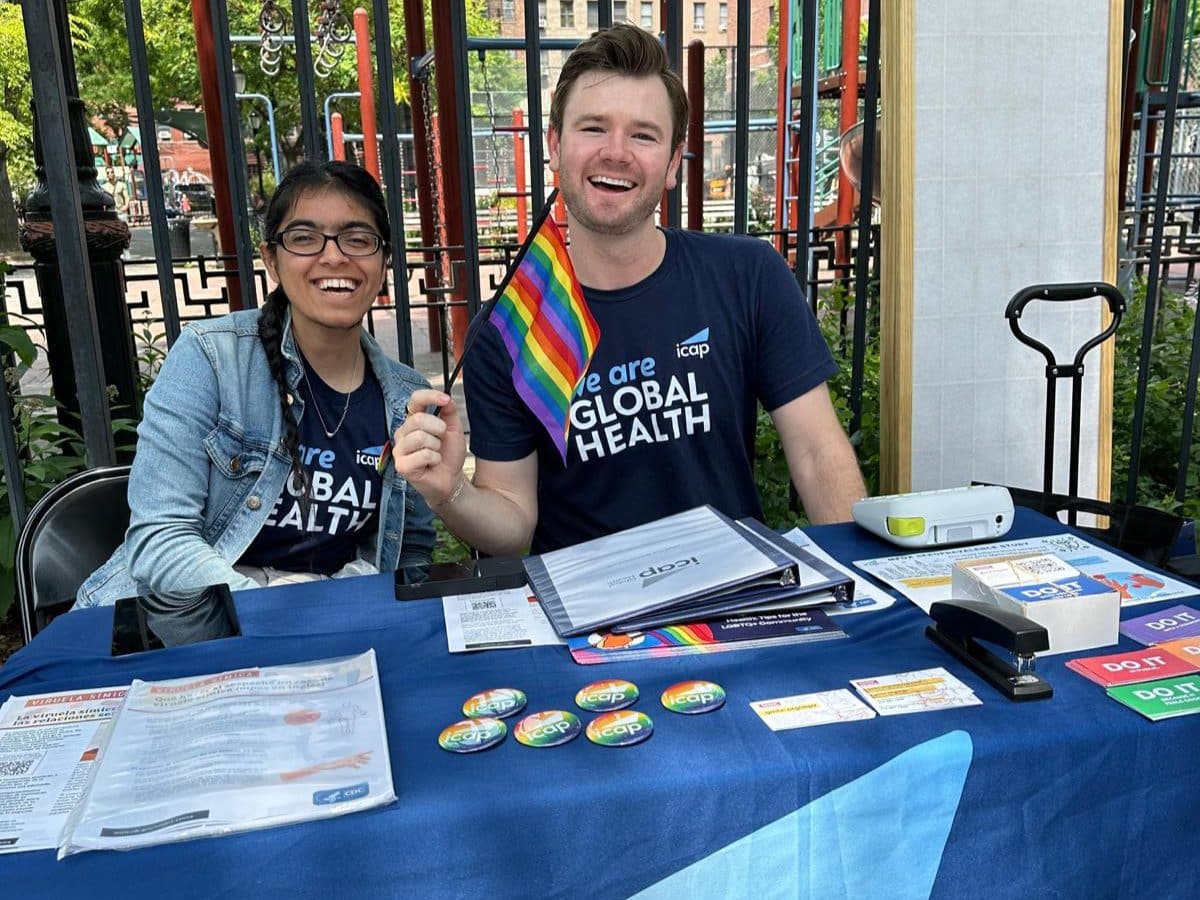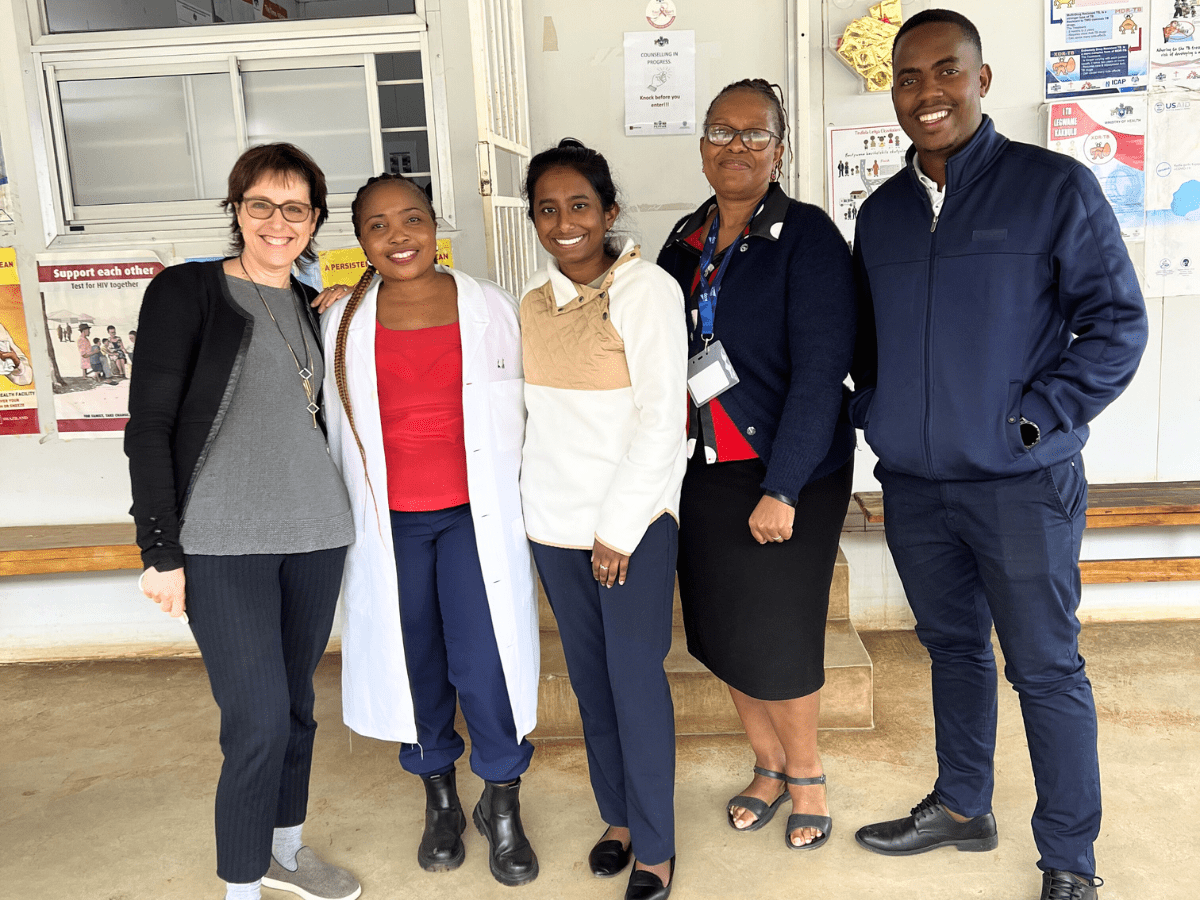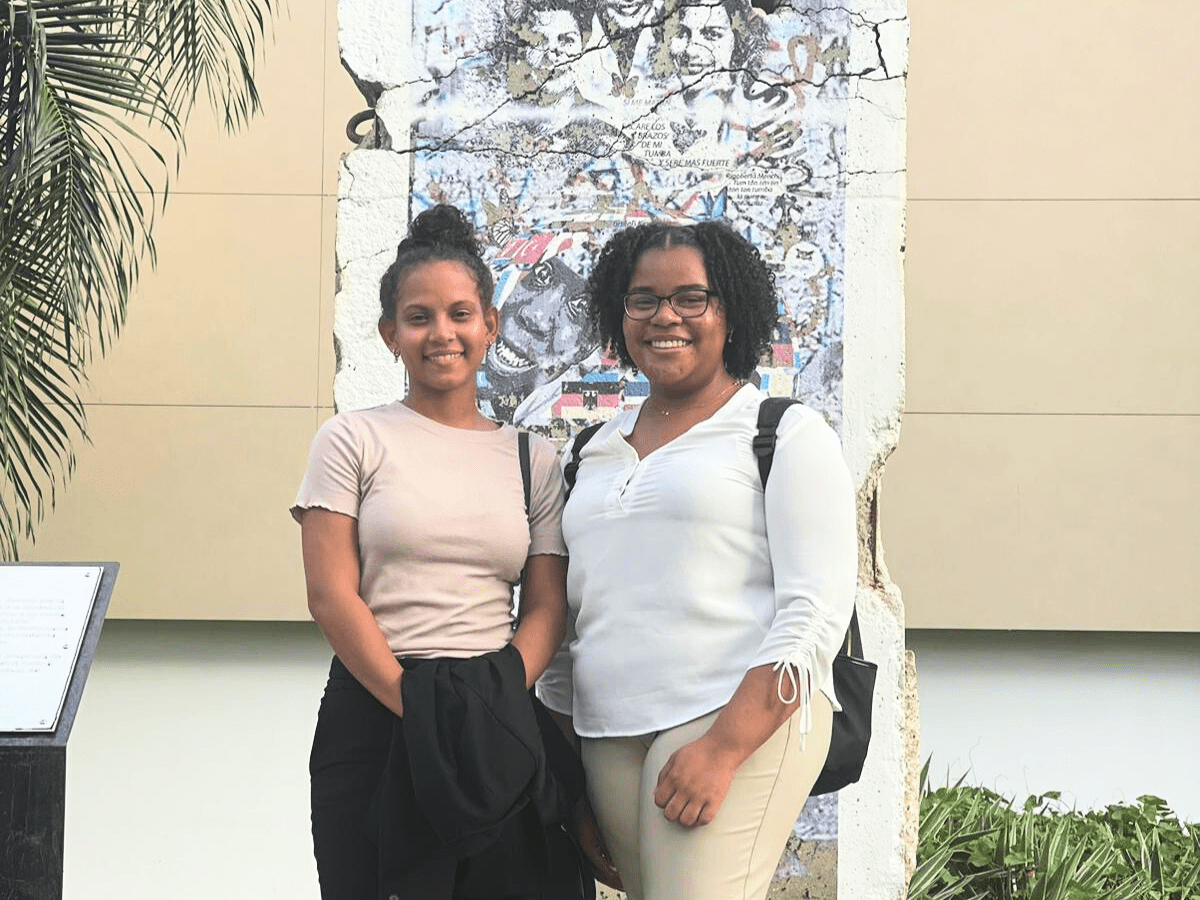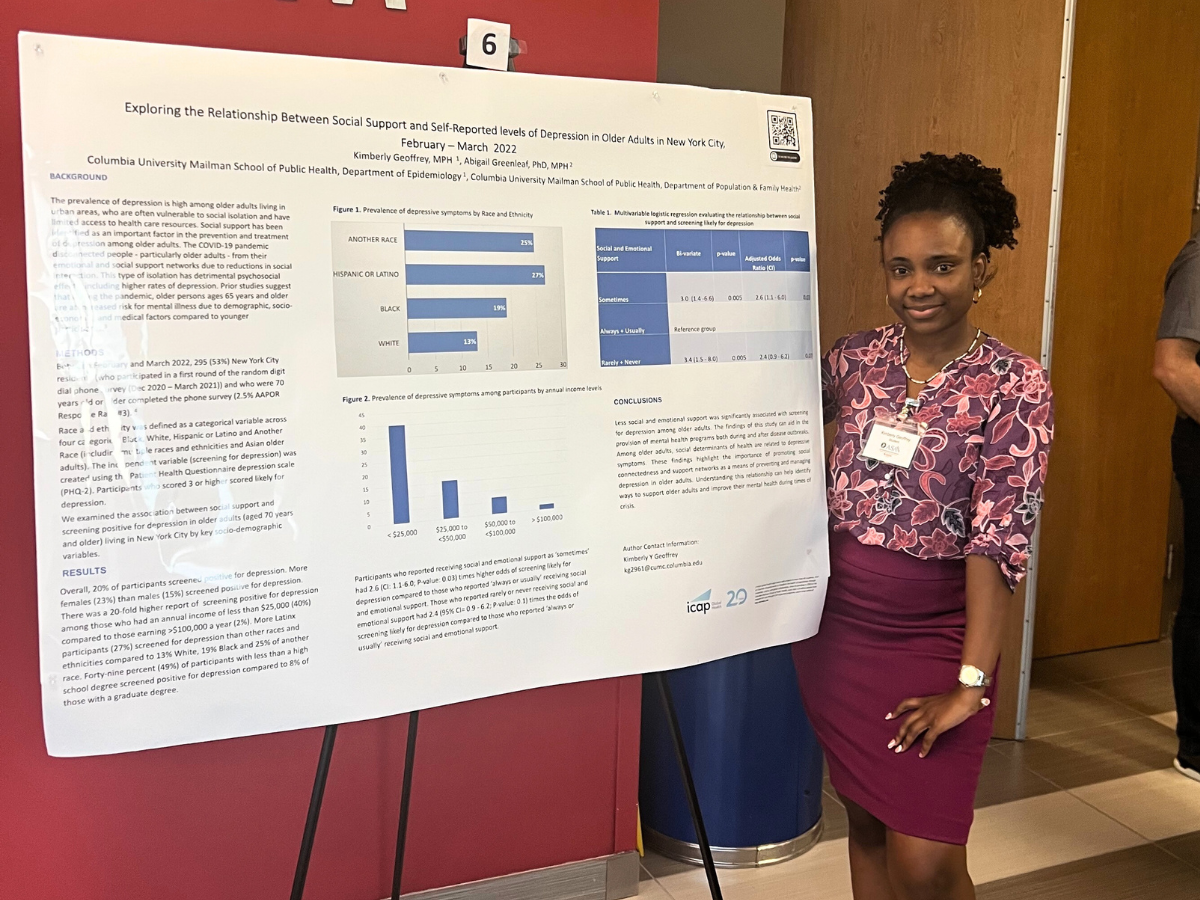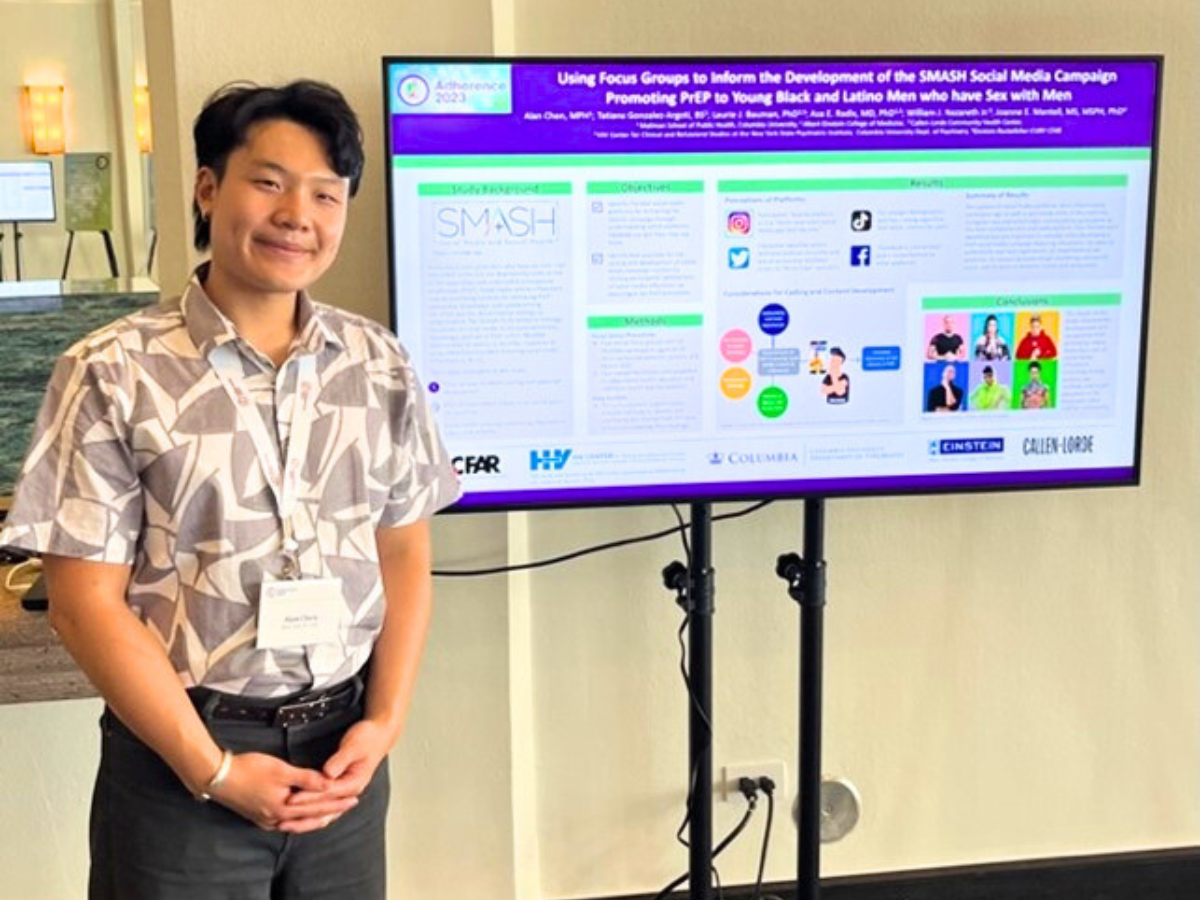Throughout my educational journey, I have been motivated by experiences that have allowed me to integrate both prevention and clinical medicine to improve health care for marginalized communities. My time as an MPH candidate at Columbia’s Mailman School of Public Health has shown me the necessity of health advocacy inside and outside of the classroom.
For the past six months, I have had the privilege to work on ICAP’s mpox seroprevalence study as a Next Generation intern. The objectives of our research centered on investigating how mpox vaccination and testing during the 2022 outbreak varied by demographic characteristics, such as race, education, income, and other social determinants, and how these indicator variables may impact prevention practices for New York City’s LGBTQ+ community in the event of a disease resurgence. I was drawn to this study because of its interdisciplinary nature. I felt grateful that I finally found a practicum experience that would combine my interests in medicine, public health, and journalism all in one. This experience would let me learn about the intricacies of a cross-sectional study and the impact it could have on infectious disease prevention.
As a part of the study, I had the opportunity to listen to the narratives of participants through interviews before transforming their words into statistical points of analysis. I learned how to approach busy strangers and re-strategize our street-based recruitment efforts even when they were already in progress. Listening to people’s answers to the behavioral health survey questions exposed me to a diverse range of perspectives. These insights helped me remain open-minded while performing data cleaning and analysis. Direct engagement with participant stories also helped me gain a more comprehensive view of the study, especially when preparing the results in charts and spatial maps for the interim study analysis.
Each day, in the scorching hot summer streets of Hell’s Kitchen and West Village where we recruited participants, we worked to spread awareness on mpox and infectious disease prevention practices. I learned that driving ideas from conception to implementation takes flexibility, creativity, and patience. For example, persistence through the initial low recruitment phase became a blessing in disguise for our team. We came together as a collective team to come up with different approaches of engaging the community with music, flyers, and slogans.
The internship afforded me the opportunity to connect with clinicians, infectious disease experts, and statisticians. Our weekly meetings were essential for brainstorming new ways to advance knowledge of mpox and resources for the LGBTQ+ community. I especially appreciated the space our team cultivated to freely discuss any hardships faced in data collection and any methods we could implement moving forward to improve our data quality. In the end, leveraging each person’s recruitment skills, statistical expertise, and advocacy enthusiasm became instrumental for the study’s success in outreach and health information dissemination. I hope to carry these skills and lessons into my future endeavors as an epidemiologist.
Sukhmani Kaur
MPH Epidemiology Candidate 2024
Mailman School of Public Health
Next Generation Intern


